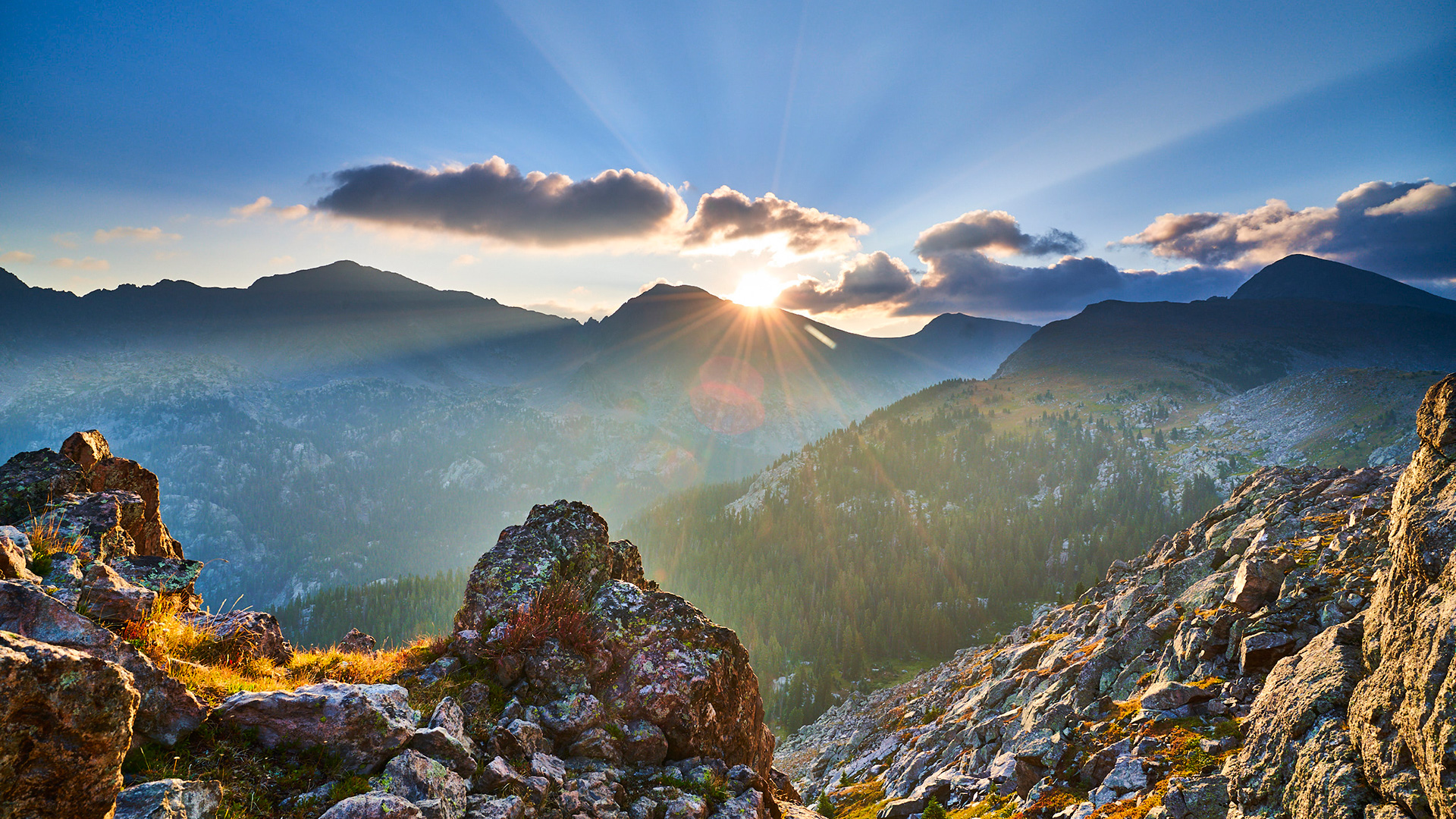
Trekking through big, open spaces is a joy, but the finding enough campsites en-route can be a pain, and nothing bursts your adventure bubble like rocking up to a noisy, crowded pitch. Wild camping, on the other hand, keeps the adventure going, and allows you to tune into your outdoor environment, like nothing else. After all, what can compare to zipping open your tent on a remote hillside, all alone, and watching the sun come up, soundtracked by an uninterrupted dawn chorus?
Follow our guide to obtain the knowledge, and pick the right kit, to become a successful, responsible, wild camper…
- Browse T3's guide to the best tents
- Check out the best telescopes for stargazing
- ... or get nature spotting with a pair of the best binoculars
1. Define your own adventure
Wild camping’s big draw is that it allows you to define your own adventure. You choose where to go and where to set up camp (within local regulations), in glorious solitude. This means it pays to be flexible about when you stop for the day. When bikepacker Ben Page – who cycled around the world – started his quest, he rode until sunset and then usually ended up camping somewhere “really crap”.
So, he shifted his mindset: “Sometimes it’s good to stop early, somewhere beautiful, if you crest the top of a pass. Why not put my tent up here, read my book for a bit and enjoy where I am?” Just make sure you plan your route ahead, check the weather, and always let someone know where you are going to be.
2. Engage stealth mode
Wild camping often operates in a grey area, where it’s only generally permitted if campers pitch in out of the way spots, pack up early in the morning, and leave no trace. The perfect wild camp is the one that no one knows you were ever there. To help you engage stealth mode, buy a green coloured tent, that’s also made with sustainable tech, and limit your use of lights at night.
Choosing a spot off the beaten track and well away from buildings and farms will enhance your experience, and being quiet will help you make friends with the local wildlife.
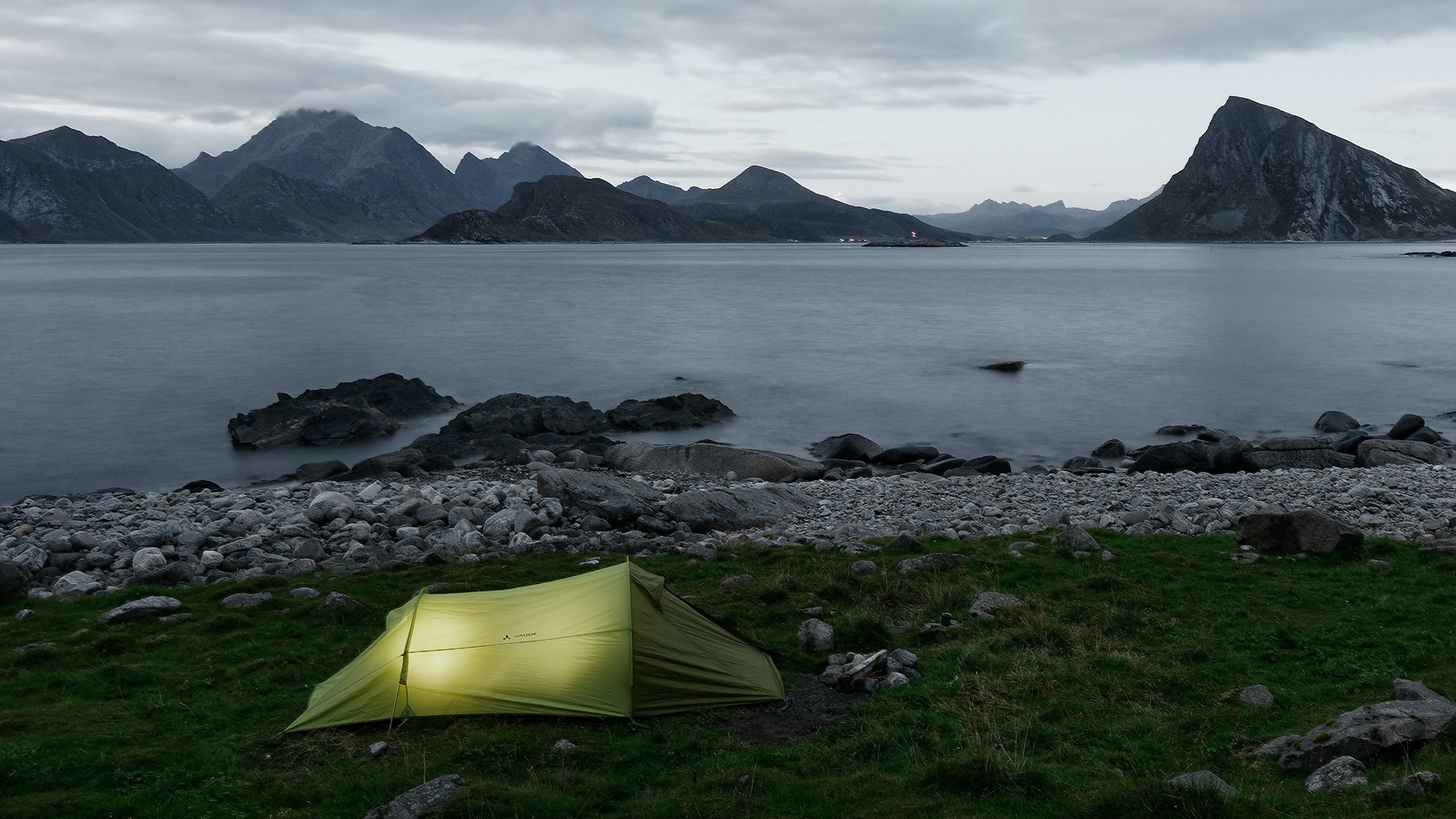
3. Always travel light
Wild camping is the antithesis of glamping – it’s all about the journey – so only pack the essentials and invest in fast and light trekking gear. You can still have a very comfortable night on a superlight inflatable camping mat, like the Sea To Summit UltraLight. This is another good reason to use a dedicated lightweight camping stove, like the MSR Windburner. Remember, portable BBQs have been responsible for some of the world's most destructive wildfires, and open fires are usually banned in national parks.
Get all the latest news, reviews, deals and buying guides on gorgeous tech, home and active products from the T3 experts
When it comes to sleeping bags you should never compromise on warmth, but streamlined, traced down-filled bags like Sea To Summit's Spark Spll -2° are excellent weight-saving choices. This is one of the best lightweight sleeping bags around.
4. Follow the code
Fly-camping trashes the environment, and is a growing problem, so prove your outdoor credentials by following the Wild Camping Code (the Scottish version is here). It should go without saying that you must take all of your trash away with you, including bagging and carrying away your used loo roll. Toileting should be at least 50 metres away from a path or water source, and waste buried at least 15cm deep, and covered over. Pollution is a problem, too, so don’t use streams to wash in or use non eco-friendly detergents. And limit your camp to two tents, tops.
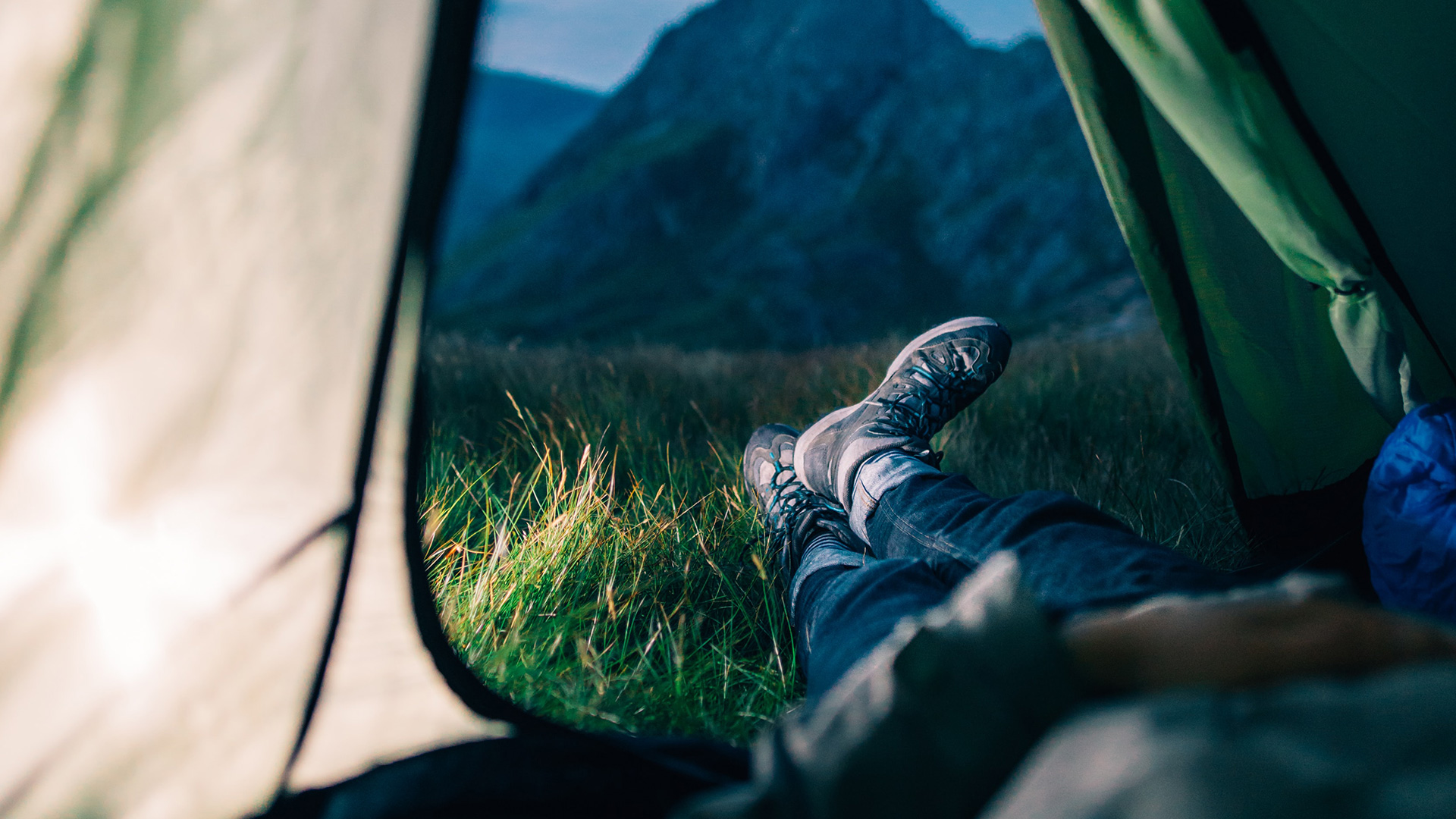
5. Purify your water
It’s impractical to carry all of the water you will need, so knowing how to find clean natural water sources is very useful. Generally speaking, running water well above human habitation is what you want to go for, but always use a proven water filter system, or purification tablets. Carrying these will be much lighter than lugging your water with you. If you are drawing from a stream take a walk upstream to check for animal carcasses or any other obvious contaminants.
You can use your stove to boil drinking water, to make sure. In places where micro-organisms, but not viruses, pose a threat, such as the US and UK, the 3L Katadyn BeFree Filter is a very lightweight filter choice.
6. Pick an intelligent spot
It pays to pitch your tent in daylight, so that you can spot if the sheltered valley floor you have chosen is likely to become a rushing stream if it rains. And, if you are in the summer, with biting insects, then consider relocating to higher ground with more airflow – this is a tip from Mountaineering Scotland’s Heather Morning. Stable rock formations can offer good shelter from the prevailing wind, but never pitch somewhere that could be hit by rockfall on a windy night – camping under trees can be risky too.
And remember to pitch your tent facing away from the sunset, so that you can unzip the flap and enjoy a stunning sunrise from your sleeping bag.
7. Invest in the right kit
Having the right kit can make a huge difference when it comes to your wild camping experience. Here's some of the equipment we'd recommend.
Vaude Hogan SUL lightweight tent
This minimalist, yet well designed 1.25kg tent will be quick to pitch and blend in nicely with your surroundings. It's suitable for one or two people. For more options, head to T3's guide to the best backpacking tents.
Sea To Summit UltraLight Insulated Mat
The best camping mat for wild trips will be lightweight and small. At just 480g but insulated for warmth, this inflatable mat features air sprung cells and packs away into a 23cm tube for easy carrying.
Sea To Summit Spark Spll -2° Sleeping Bag
You need to carry your own food when wild camping, so the fact that the Sea To Summit Spark Spll -2° down-filled bag packs away into the size of a water bottle is a real bonus – and it weighs just 490g. For more options, check out T3's guide to the best sleeping bag.
MSR WindBurner Personal Stove System
Open fires are no-go for wild camps, and the best camping stove for wild camping needs to be compact and lightweight. This ultraportable solution from MSR will fire up your food, even in windy conditions, without weighing you down.
Katadyn BeFree water filtration system 3L
Heavy and complex filtration systems are a drag, which is why the award-winning design of the lightweight Katadyn BeFree water filter and bag has been such a hit.
Scarpa Mescalito Mid GTX
If you are going off the beaten track to wild camp, then it pays to have a boot that can handle rocky terrain. These Italian-designed, Gore-tex equipped, yet lightweight hikers will protect your ankles and give you surer footing. You'll find more tried-and-tested options in our best hiking boot ranking.
Maier Sports Tangstad Jacket (M+W)
If you're going anywhere where sunshine isn't guaranteed, you'll need to invest in one of the best waterproof jackets. If you're toting a backpack, then a waterproof jacket isn’t much good unless it’s super-breathable. Thankfully, the Tangstad is designed to be just that, and is available in both women’s and men’s cuts.
Deuter Aircontact Lite 50+10
There’s no point having superlight kit without a lightweight, yet intelligently thought out bag to carry it in. One of the best hiking backpacks is the Deuter Aircontact Lite. This German-designed, hydration-compatible pack distributes the weight excellently.
8. Pick your spot
While it's impossible to cover all the amazing wild camping spots around the world, here are a few examples to inspire you.
Isle Of Arran, Scotland (UK)
Some of the best wild camping views on the planet can be had from the beaches of the Isle Of Arran, in the Firth of Clyde, off the West coast of Scotland. Unlike the rest of the UK, wild camping is legal in scotland, too. The rugged, 65 mile (107km) Arran Coastal Way loops the whole island, and is a popular multi-day trek. Just make sure you pitch your wild camp above the high tide mark!
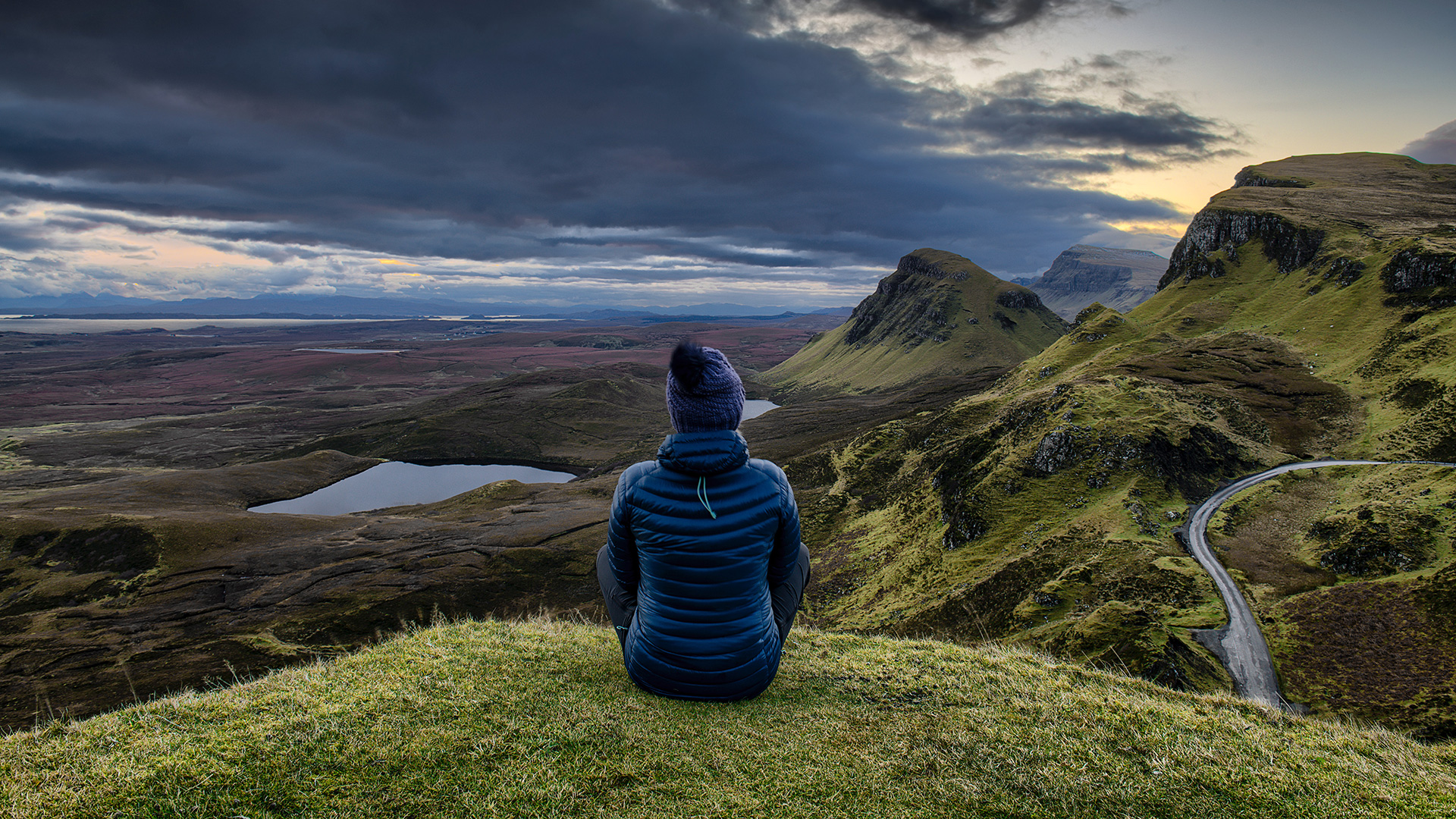
Snowdonia, Wales (UK)
Wild camping is technically not legal in the UK without permission from the landowner. In Snowdonia this permission is sometimes granted, as long as you follow the Wild Camping Code. The Carneddau range of Welsh mountains has some great spots, including a bothy at the bottom of Cwn Dulyn.
Holy Cross Wilderness, Colorado (USA)
Colorado is the land of 14er peaks (above 14,000ft), and the Holy Cross Wilderness has some incredible backcountry wild camping areas (permitted outside the East Cross Creek Area). Pine forests, dramatic rock faces and mountain lakes make this truly wild terrain, so take a guide!
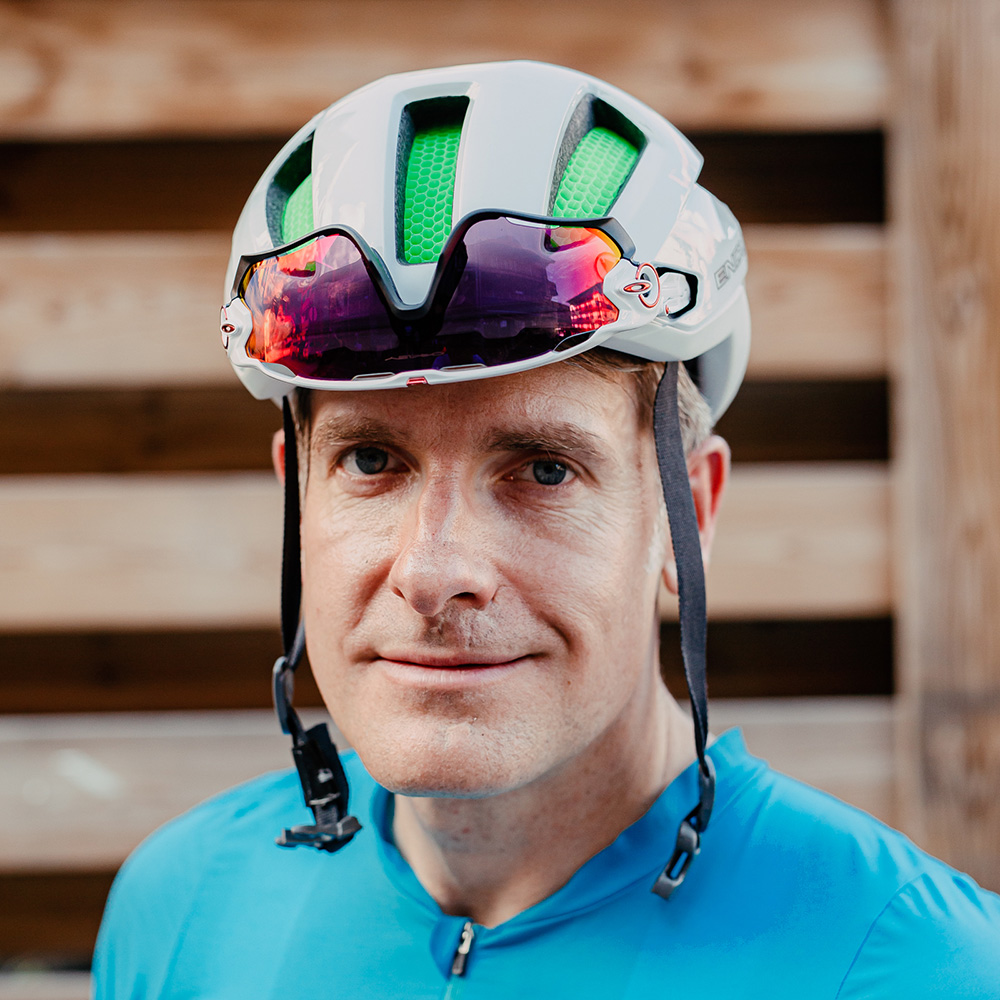
Matt Ray is an outdoor journalist and photographer whose work appears in magazines and websites, including RedBull.com, Men’s Fitness and Nat Geo Traveller. He can find an adventure anywhere, from racing a mountain bike down a ski slope, to climbing under bridges in Edinburgh.
